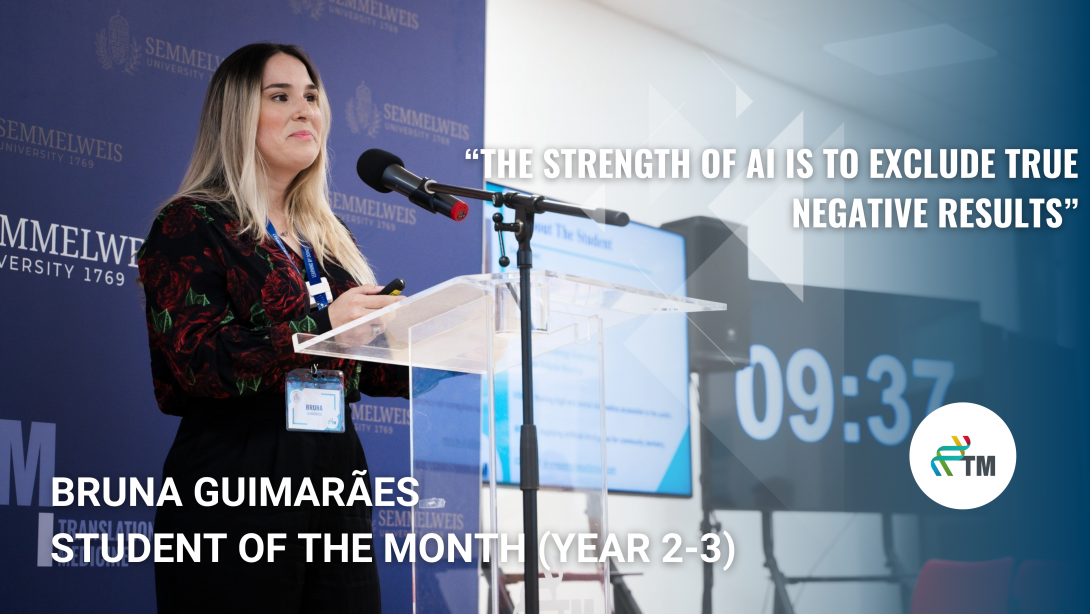
She is an excellent student from the Dentistry Group, who is making remarkable progress. Her first project was focused on the accuracy of artificial intelligence in approximal caries diagnosis, and was published in a D1-ranked journal. In November, Bruna Guimarães was named the Student of the Month (Year 2-3) at the Centre for Translational Medicine.
When Dr. Guimarães was approved for the Ph.D. course, her supervisor, who already had a student at the Centre for Translational Medicine, advised her to join the centre. It happened at the very beginning of her first year, therefore she could start her Ph.D. training as a CTM student. In her projects, she researches ways to make high-tech dental diagnostics accessible to the public. This could be facilitated, for example, by applying artificial intelligence in community dentistry. Using AI by healthcare professionals to solve routine problems could be beneficial for all patients.
Doing research alongside patient care is not difficult for Dr. Guimarães. “I have been involved in research since 2009, and I have always believed that clinical decisions that really work are always evidence-based. This is my second Ph.D., and for the first time, I can focus myself totally on research. I have the opportunity to face this as a career and to use evidence-based treatment to the benefit of patients.”
Based on her recent publication, it is known that dentists’ accuracy in detecting approximal caries lesions on bitewing radiographs is moderate. Some reasons, such as professional experience, overlapping anatomical structures and radiographic artifacts, can confuse the interpretation, making the diagnostic process subjective. “In our research, we found high AI sensitivity and specificity for detecting approximal caries lesions on bitewing radiographs. According to the negative predictive values and negative likelihood ratios, the greatest strength of AI is to exclude true negative results. In addition, we advise AI to be used as a preliminary step, followed by expert diagnostic. This saves time, reduces unnecessary ionizing radiation exposure, and helps to avert the over- or underestimation of caries. AI might manage human factors such as stress, fatigue, inexperience and carelessness, and this way, supports decision-making in oral healthcare.”
(Szabó Emese)